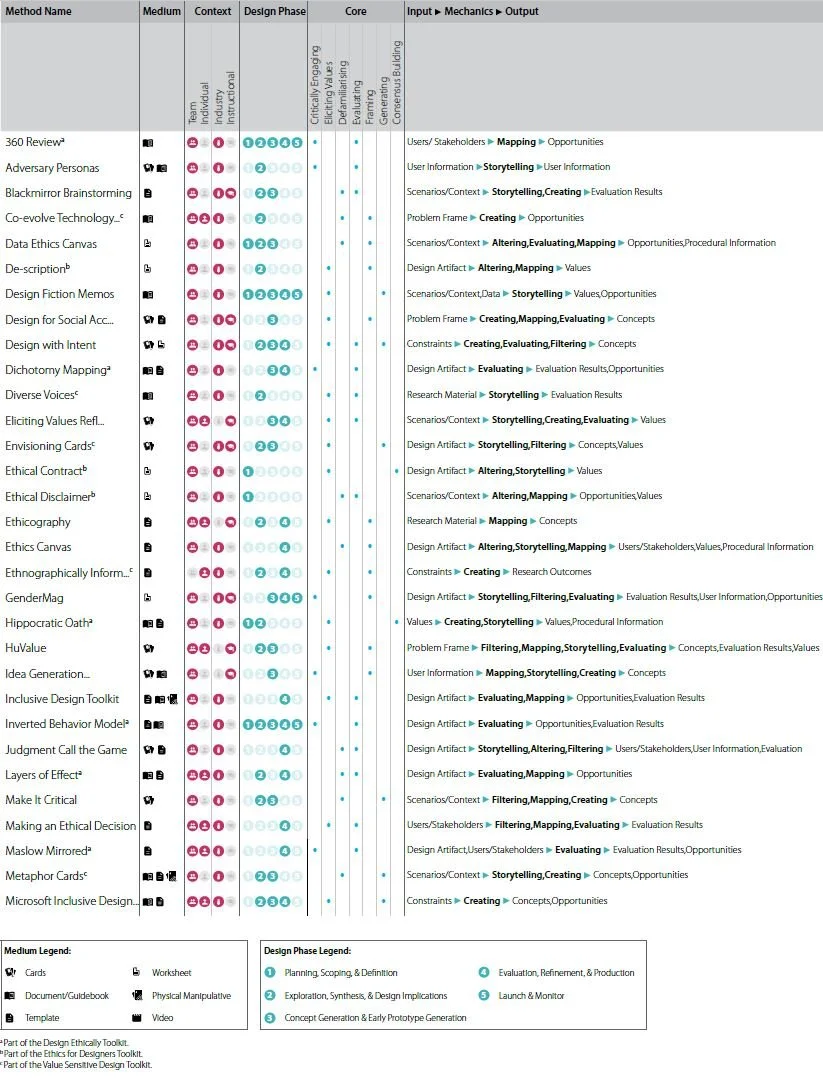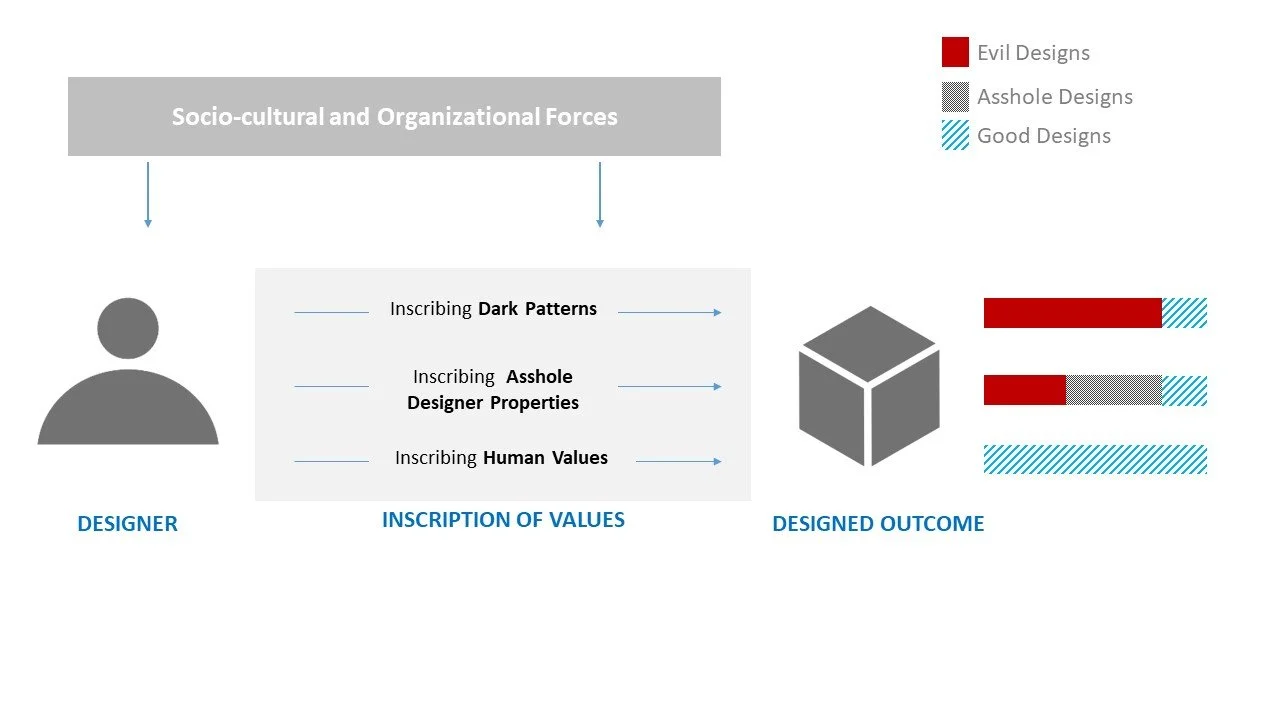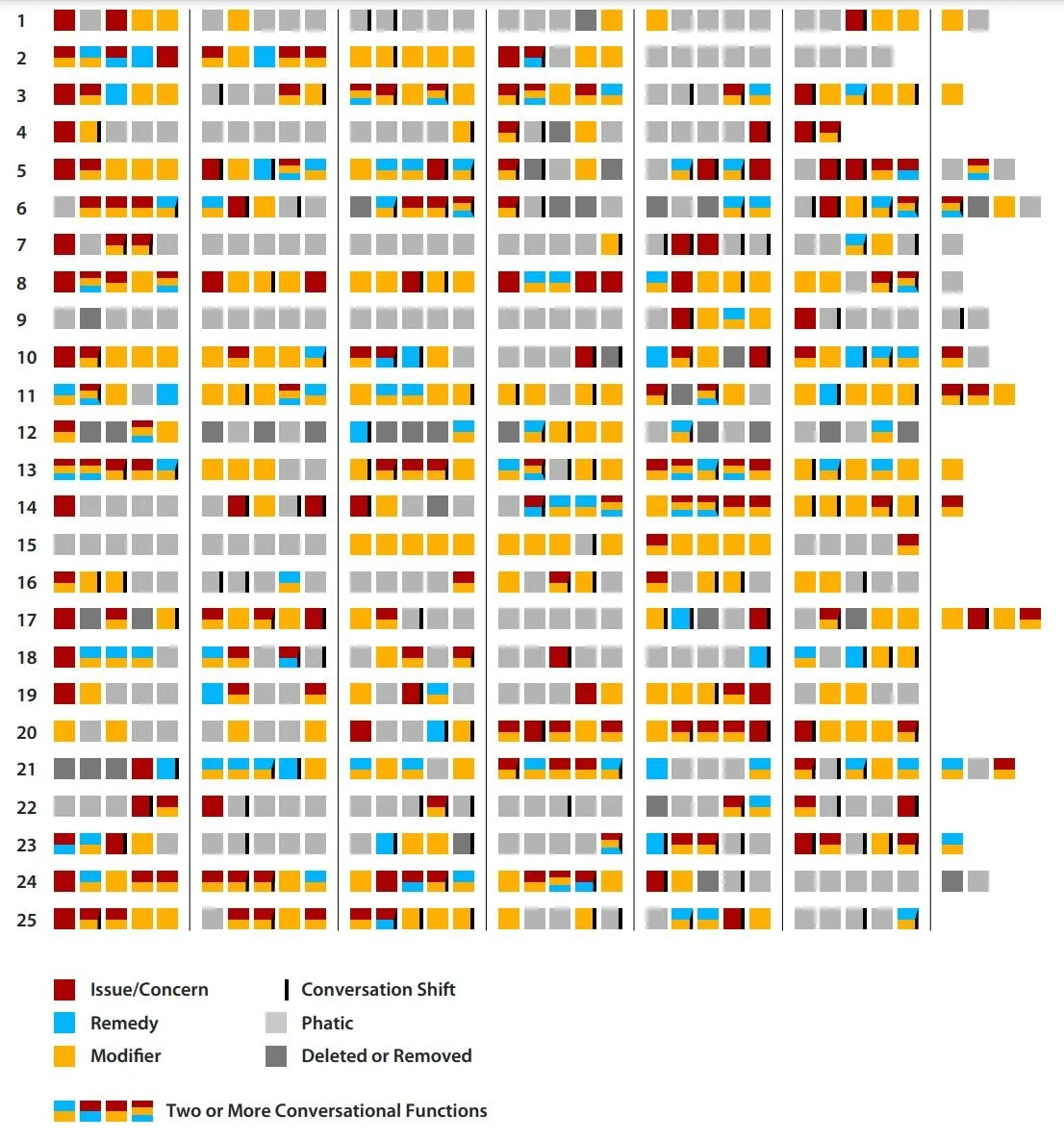Colloquial Ethics and Methods
Collection of Methods. Decisive Constraints | Method's Perspective
What are the existing ethics-focused methods and tools for design? What are some process decisive constraints used by designers of methods? Designers use methods and tools to activate ethical action during technology design.
I have conducted recent studies to explore the landscape of ethics-focused methods, those currently existing and the process of designing them to incorporate ethical design complexities. Taking an interpretivist lens, I conducted the following studies:
With a collection of 57 ethics-focused methods, a content analysis resulted in characterizing the methods and defining multiple ontologies of a method {M4}. This work is further being explored to build a method identifier website to present the collection of methods in a practitioner-resonant format {W.I.P}.
With semi-structured interviews with 12 ethics-focused methods developers to understand the instigation, creation and dissemination of the methods, a reflective thematic analysis resulted in defining four decisive constraints of their process {M3}.
A.E.I.O.YOU: Vowels of Ethics
Toolkit for Ethics in Technology and Design Practice
Technology and Design Practice needs Ethics and the actors involved in the space, our practitioners need reflective tools to learn about their ethical awareness, responsibility, and trajectory. Ethics in practice is heavily dependent on a relational ontology of artifacts in use/ created, ecological aspects, and individual/ interactional qualities of the practitioners. Hence, introducing the A.E.I.O.YOU: Vowels of Ethics toolkit, currently consisting of four tools. The vowels in the A.E.I.O.YOU toolkit describe flavors that evoke and surface various kinds of support needed by technology and design practitioners to investigate:
A--Artifacts for support for practitioner’s ethical engagement.
E--Ecological Factors and Complexity that the practitioner is a part of.
I--Interactions with other practitioners during ethical engagement.
O--Other practitioners and their responsibility in ethical decision making.
YOU--YOU refers to individual practitioners, their ethical awareness, responsibility, and action, both within and beyond ecological, professional role-focused, and disciplinary borders.
Collection of Ethics-focused Design Methods
Designed a practice resonant website to make a collection of Ethics-Focused methods accessible to technology and design practitioners and students.
More details on the analysis is presented in an article linked below.
Surveying the Landscape of Ethics-Focused Design Methods
Over the past decade, HCI researchers, design researchers, and practitioners have increasingly addressed ethics-focused issues through a range of theoretical, methodological and pragmatic contributions to the field. While many forms of design knowledge have been proposed and described, we focus explicitly on knowledge that has been codified as ``methods,'' which we define as any supports for everyday work practices of designers. In this paper, we identify, analyze, and map a collection of 63 existing ethics-focused methods intentionally designed for ethical impact. We present a content analysis, providing a descriptive record of how they operationalize ethics, their intended audience or context of use, their ``core'' or ``script,'' and the means by which these methods are formulated and articulated. Building on these results, we provide an initial definition of ethics-focused methods, identifying potential opportunities for the development of future methods to support design practice and research.
Everyday Manipulation. Asshole Designer Properties | User's Perspective
What are end-users perceptions of everyday manipulation through technology? How are the users reacting to ethical concerns? Technology design has users, customers, or citizens at the receiving ends of designed technological artifacts by designers with ethical or manipulative intentions.
I conducted studies to describe users’ conversations around ethical concerns in their everyday life from examples posted by them on social media platforms such as Reddit and Twitter. Taking a digital ethnography approach, posts with #darkpatterns and from /r/assholedesign were used for the following studies:
With the #darkpatterns dataset, a thematic analysis described UX practitioners’ conversations about dark patterns and ethical decision-making in practice {E1}.
With the /r/assholedesign dataset, content and thematic analysis revealed a list of properties of asshole designers and provide working definitions of asshole designs, darkpatterns, value-centered designs, and bad designs {C7, E3}.
With the /r/assholedesign dataset, a discourse and sequence analysis of the comments presented various ethical argumentation strategies used by everyday users and how these conversations were modified or extended by the subredditors, to argue for the role of everyday users in community building against technological manipulation {J1}.
What Kind of Work Do "Asshole Designers" Create? Describing Properties of Ethical Concern on Reddit
Design practitioners are increasingly engaged in describing ethical complexity in their everyday work, exemplified by concepts such as "dark patterns" and "dark UX." In parallel, researchers have shown how interactions and discourses in online communities allow access to the various dimensions of design complexity in practice. In this paper, we conducted a content analysis of the subreddit "/r/assholedesign," identifying how users on Reddit engage in conversation about ethical concerns. We identify what types of artifacts are shared, and the salient ethical concerns that community members link with "asshole" behaviors. Based on our analysis, we propose properties that describe "asshole designers," both distinct and in relation to dark patterns, and point towards an anthropomorphization of ethics that foregrounds the inscription of designer's values into designed outcomes. We conclude with opportunities for further engagement with ethical complexity in online and offline contexts, stimulating ethics-focused conversations among social media users and design practitioners.
**This paper was awarded DIS Honorable Mention, top 5%
"That's dastardly ingenious": Ethical Argumentation Strategies on Reddit
Scholars have previously described how online communities engage in particular discourses and forms of argumentation. In parallel, HCI and STS researchers have described discourses surrounding ethics and values and their role in shaping design processes and outcomes. However, little work has addressed the intersection of ethical concern and the discourses of non-expert users. In this paper, we describe the argumentation strategies used by Redditors on the subreddit 'r/assholedesign' as they discuss ethically problematic design artifacts. We used content and sequence analysis methods to identify the building blocks of ethical argumentation in this online community, including ethical positioning when raising issues of concern, identification of potential remedies to the original design artifact or issues of concern, and means of extending or negating these elements. Through this analysis, we reveal the breadth of ethical argumentation strategies used "in-the-wild" by non-experts, resulting in an increased awareness of the capacity of community members to engage in "everyday ethics" regardless of specific ethics training. We describe future opportunities to connect these ethical argumentation strategies with design practices, education, and methods.



